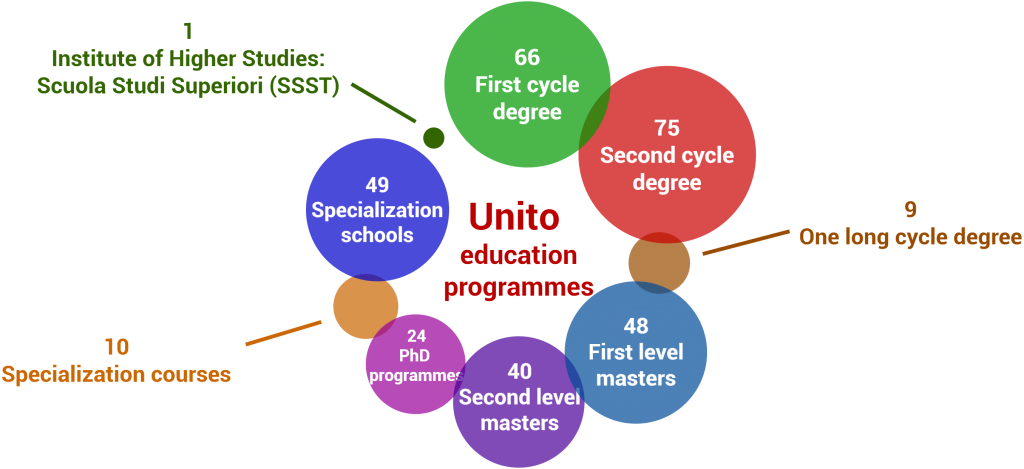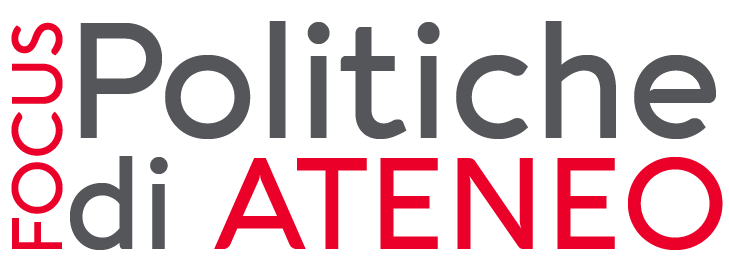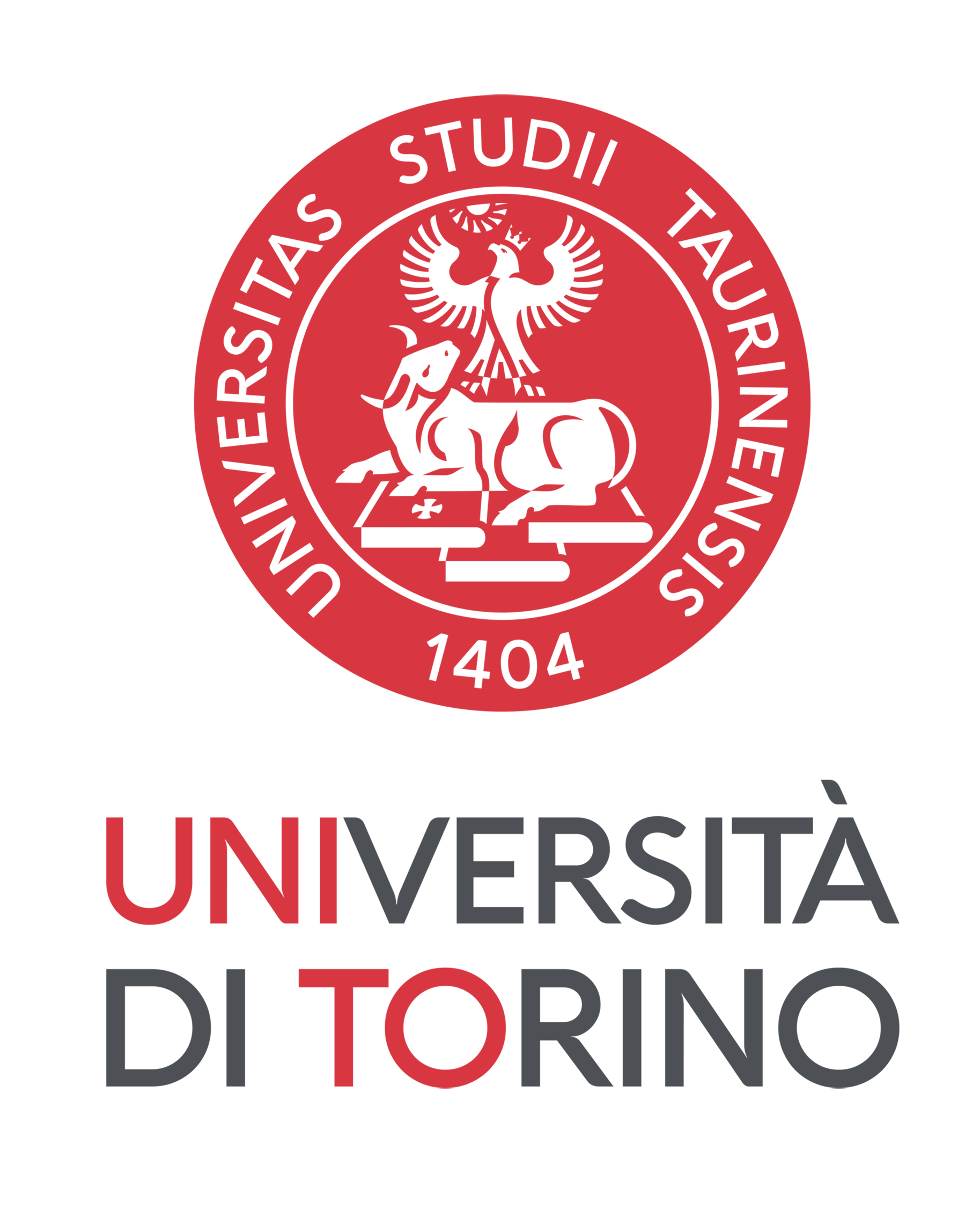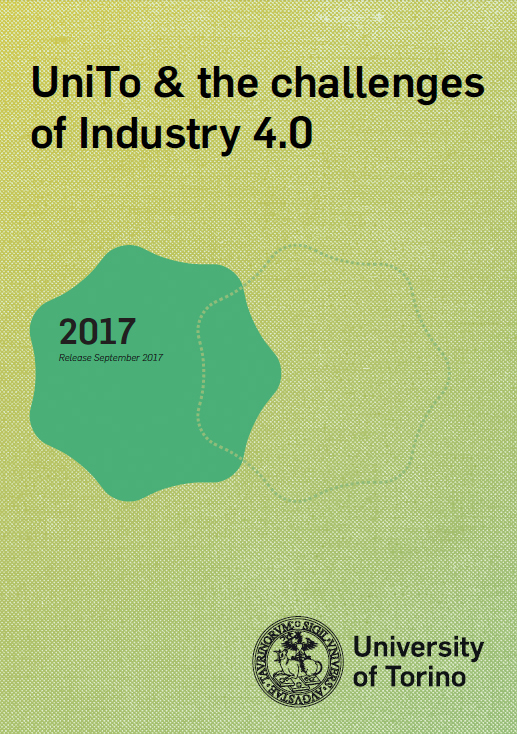Unito Focus G7
University of Turin presents its actions about Industry 4.0, Research, Labour 4.0 and Sustainability.
Discover the open invitation started from University of Turin to the international scientific community.
Industry 4.0
Download the leaflet in pdf format.
UniTo and, generally speaking, academic institutions should play the role not only of technological pivots, but also of gatekeepers linking industry, society and territory.
UniTo has implemented an extensive educational and training framework in a number of core fields relevant to Industry 4.0:
- Economics and Business Models Circular economy, Sharing economy, Business Models Canvas, Sustainability and Financials
- Digital Technology Management Internet of Things (IoT), Internet of Data (IoD), Big & Fast Data, Data Analytics Cloud & Cloud Computing, High Performing Computing
UniTo & challenges of Industry 4.0 (Release Sept 2017)
- Smart Product & Smart Design Smart Materials, Smart Prototyping, Additive manufacturing, Wearable Technologies, Design Thinking
- Smart Human Resource Management Ergonomics, HR management, innovation & Skills reconfìguration, New Organizational Models
- Smart Logistic & Maintenance Management
- Security & Risk Management Risk assessment & Risk Management
- Design and testing of innovative materials, sensors and devices.
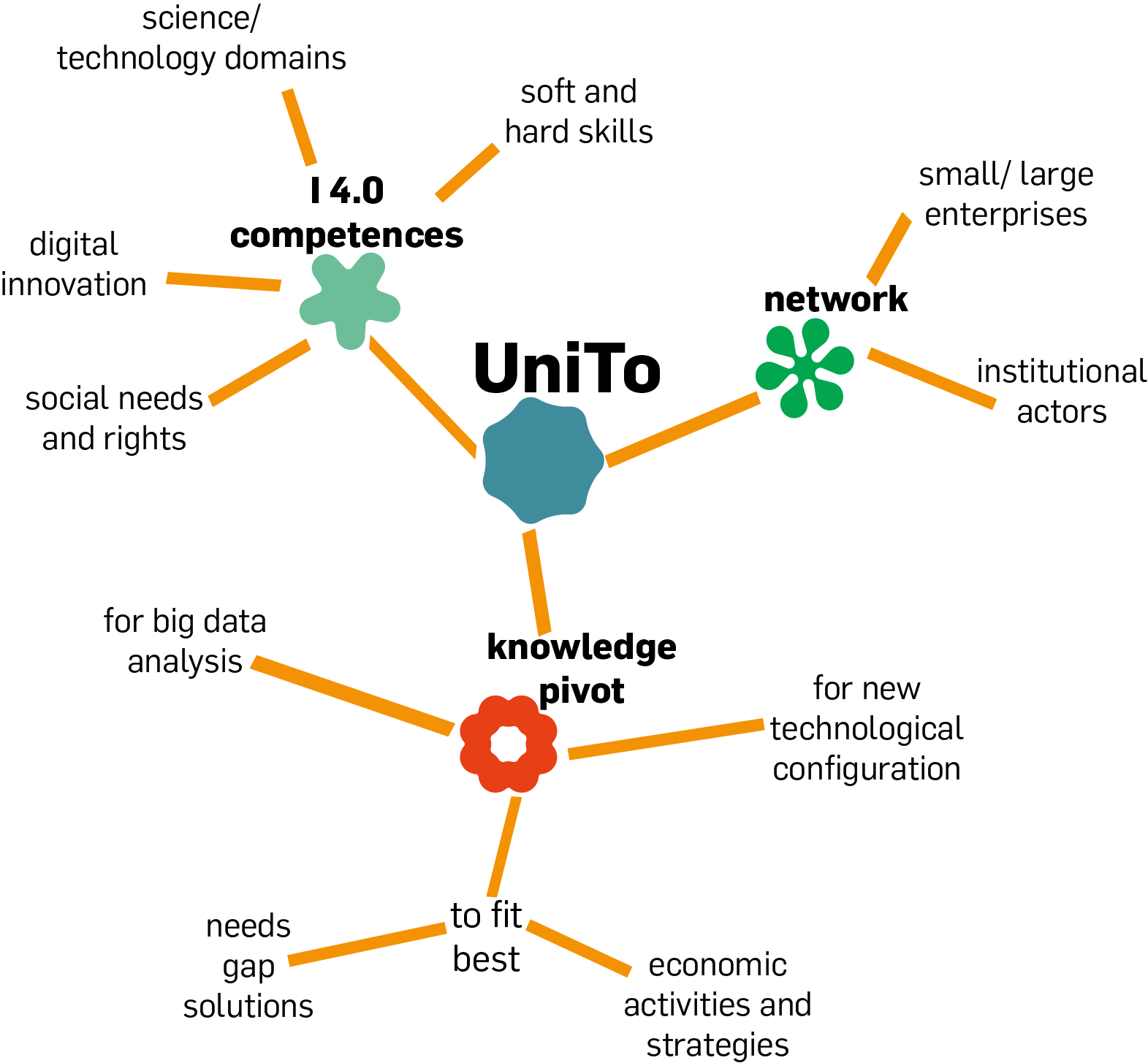
Research
Download the leaflet in pdf format.
Open science
Discover the open invitation started from University of Turin to the international scientific community to collaborate to design and achievement of a new updated model of a digital radiography and computed tomography in heritage science.
For more information visit innovazione.unito.it
The University of Torino is one of the largest Italian Universities. Research and training are performed in 27 Departments, encompassing all scientific disciplines.
According to ARWU international ranking, UniTo is ranked among the top 300 universities out of 1.200, together with other 5 Italian universities.
As for the ARWU field “Clinical Medicine and Pharmacy”, UniTo is ranked in the top 100 institutions (76-100).
With reference to the most recent national evaluation of the Italian university system (VQR 2011-2014), UniTo is ranked in the top 3 ltalian universities in 9 scientific areas out of 16.
UniTo is deeply involved in scientific research and manages roughly 500 projects per year, both at the national and international level.
Evaluation of the ltalian university system (VQR 2011-2014). UniTo is ranked in the top six in the following areas (for big structures):
Projects presented in competition
Academic pubblications
million earned through research and consultancy activities
million earned through industrial research contracts
Scholarly Output
Figures concerning the scholarly output provide a picture of how scientific production evolved over time. Figure 1 plots the scholarly output of our researchers in Industry 4.0 related topics during the last 20 years. The Figure shows an evident increasing trend in publications, revealing the importance these topics have gained over time. In particular, the scholarly output has grown substantially since the 2003, reaching 267 publications in 2016. In Figure 2, instead, we disentangled the contribution of each research area. A large share of all the publications comes from Chemistry and Physics studies, followed by Computer Science. However, Figure 2 shows that the research areas share a common increasing trend, though at slightly different rates, highlighting the relevance of the role played by each field.
Research impact
The metric used to evaluate the quality and the impact of publications is based on citations count. It is computed as the number of publications that have been highly cited, having reached a given threshold of forward citations. Figure 3 shows the evolution of the share of publications that are in the top 10 citation percentile. The evidence on publications quality suggests that on average about 1 out of 5 publication ranked in top 10% most cited worldwide. We can also notice that the long term trend seems to be slightly increasing, even though citation patters tend to fluctuate over time.
Internationalization
The interesting and promising evidence provided by the quality metric is confirmed by the data on the internationalization degree of the university publications. The extent of international collaboration is measured by counting the number of publications in which at least one co-author belongs to a foreign institution. The internationalization degree of Industry 4.0 related publications from 1996 to 2016 is shown in Figure 4. The data exhibit a pronounced increasing trend with a substantial acceleration during the last five years. It is worth noting that, comparing the number of internationally co-authored publication with the overall number of publication in Figure 1, the former are about half of the latter, indicating a strong tendency toward international collaborations. This increasing relevance of international co-authorships is also confirmed by the evidence on the research areas (Figure 5).
Source: Own elaboration on SciVal
Download all the datas in pdf format
Furthermore UniTo is involved in about 450 international cooperation formal agreements with institutions from all around the world (South America, Mediterranean countries, India and China, in addition to Europe), including joint educational programs at undergraduate and doctoral level. The long record of participation of UniTo in the EU strategie research agenda results from 115 FP7 funded research projects, among which 33 UniTo-coordinated projects, 4 ERC grants a s host institution and 4 Research lnfrastructure projects.
Under H2020, 57 projects have been funded so far (2014-present), among which 10 coordinated projects, 3 ERC grants a s host institution and 4 Research Infrastructure projects.
Labour 4.0
Download the leaflet in pdf format.
The process of digitization and industry 4.0 paradigm affects almost everything in today’s organizations and puts huge pressure on organizational, management and control processes companies are facing. UniTo researchers work on how digitization improves working style and accelerates change.
To be successful we need new skills and competencies, new forms of leadership, new organizational capabilities and, last but not least, new approaches to performance measurement and management control systems. UniTo can help companies to redefine the key strategic decisions-making processes to prepare them for these fundamental changes. It could be as part of the strategic orientation (Roadmap & Assessment), the anchoring in the organization (Change Management & Target Operating Model) or the specific design of the performance management instruments (Digital Forecasting, Digital Reporting).
UniTo researchers support the competitiveness of businesses and business networks through:
- Interpreting data collected and delivered by consumers
- Designing and implementing network structures, analytical tools and learning processes
- Strengthening the skills of people involved and designing motivation strategies in order to increase collaboration in data interpretation and performance improvement
- Supporting the reorganization of structures and the development of appropriate leadership models
- Supporting strategic and management decision-making processes and ensuring sustainability (e.g., adapting KPI and incentive systems).
Furthermore, UniTo researchers improve competitiveness and equity through:
- Policies for promoting and encouraging stable cooperation between enterprises and training and research organizations
- Training policies to improve the relationship among businesses and the labour market
- Policies to improve the quality of the socio-economic environment and of the work itself
- Impacts of work 4.0 on the social rights.
Sustainability
Download the leaflet in pdf format.
Our Sustainability Reports narrate how the human, intellectual, natural and relational capitals are embedded in UniTo and show the sustainability performance of the university. They disentangle the complex managerial governance that supports knowledge production and the achievement of social responsibilities, following a defined strategie plan.
The Reports have been edited using the GRI (Global Reporting Initiative) guidelines version G4, Core “in accordance”.
Main issues are:
Economic sustainability
It consists of economic value generated and attracted, Economic value distributed to relevant stakeholders, Indirect economic distribution, Proportion of spending on local suppliers and GDP generated by UniTo in proportion to public funds received.
Social sustainability
It refers to human resources and gender distribution, UniTo’s students, UniTo attractiveness, UniTo graduates, Removal of economic and social obstacles which limit access to the right of higher education, Integration of disabled students, UniTo fosters the employability of its student.
Environmental performances of UniTo: energy consumptions, waste management, emissions, green procurement.
UniToGO is the “office” for environmental sustainability established in UniTo Division for Administration and Sustainability. It is an interdisciplinary network composed by Professors, Researchers, Techincal and Administrative Staff and Students who works on Energy, Mobility, Waste, Food and Green Public Procurement purposes.
The Report
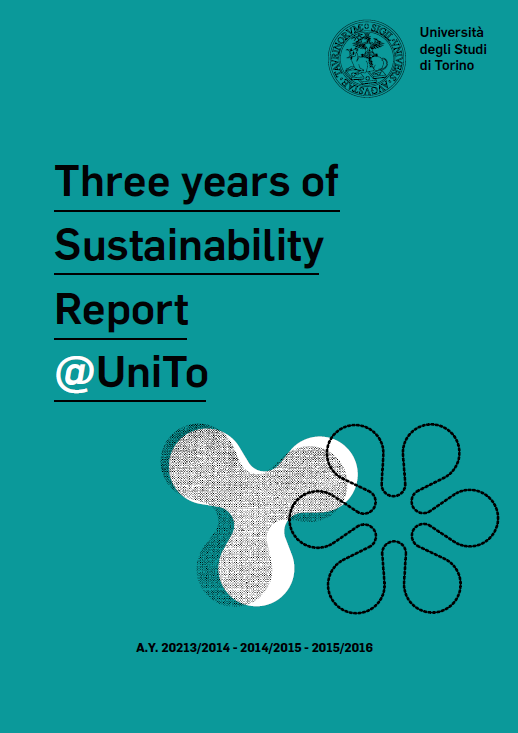
Unito at a glance
Download the leaflet in pdf format.
Founded in 1404, the University of Torino (UniTo) is one of the most ancient and prestigious Italian Universities. It is a public institution aiming at “higher education, and scientific and technological research” (art. 1, University of Torino Statute).
Venues
Located in Piedmont, UniTo can be considered as a “city-within-a-city”, with its 120 buildings in different areas of Torino and in key urban places of the entire Region.
International
Promoting culture and producing research, innovation, training and employment for the surrounding environment, UniTo
also operates at an international level through partnership arrangements with India, China, developing countries in Asia,
Latin America, Eastern Europe, the Mediterranean Area and with a number of international organizations.
Tradition
Many of the leading figures in 20th century Italian political, social and cultural life, such as Antonio Gramsci, Piero Gobetti, Norberto Bobbio, Cesare Pavese and Umberto Eco graduated from Torino University, as well as three Nobel Prizes Winners for Medicine, Salvatore Luria, Rita Levi Montalcini, Renato Dulbecco, and two Italian Presidents, Luigi Einaudi and Giuseppe Saragat.
Students
International students
Students enrolled in masters (I and II level)
PhD students
